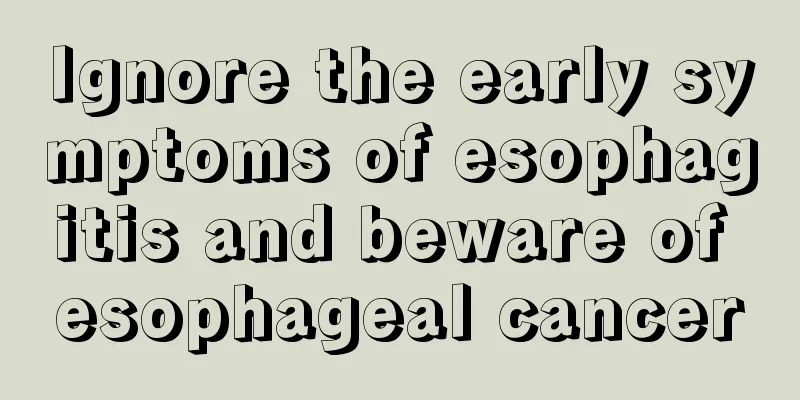I have small itchy bumps on my body

|
If you have pimples on your body and they are very itchy, you may have eczema, which is a very common skin disease. You can take some medicine to treat rheumatism or allergies. During the treatment, pay attention to diet adjustment and eat less raw, spicy and irritating food. Keep exercising and stay happy. Excessive stress can also trigger eczema flare-ups. Let’s take a look at the clinical manifestations and treatment methods of eczema. Clinical manifestations 1. According to the manifestation of skin lesions, it is divided into three stages: acute, subacute and chronic. (1) Acute eczema lesions initially appear as numerous densely packed millet-sized papules, papulovesicles or small blisters with a flushed base that gradually merge into patches. Due to scratching, the tops of the papules, papulovesicles or blisters may be scratched to reveal obvious punctate exudation and small erosive surfaces with unclear edges. If secondary infection occurs, the inflammation will be more obvious and may form pustules, pus scabs, folliculitis, furuncles, etc. Conscious severe itching. It often occurs on the head, face, behind the ears, distal limbs, scrotum, and perianal area, and is often distributed symmetrically. (2) Subacute eczema After the inflammation of acute eczema is alleviated, the skin lesions are mainly small papules, scabs and scales, with only a small amount of papulovesicles and erosions. Still have severe itching. (3) Chronic eczema often turns into chronic eczema due to repeated attacks of acute or subacute eczema. It may also start as chronic eczema. The symptoms include thickening and infiltration of the skin in the affected area, brown-red or pigmentation, rough surface, scaling, or scabs due to scratching. Conscious itching. It is commonly found in the calves, hands, feet, elbows, popliteal fossa, vulva, and anus. The course of the disease is uncertain, prone to relapse, and difficult to heal. 2. According to the scope of skin lesions, it is divided into two categories: localized eczema and generalized eczema. (1) Localized eczema occurs only in specific parts of the body and can be named according to the part of the body, such as hand eczema, vulvar eczema, scrotal eczema, ear eczema, breast eczema, perianal eczema, and calf eczema. (2) Generalized eczema has multiple lesions that spread or scatter to multiple parts of the body. Such as nummular eczema, autosensitive eczema, and seborrheic eczema treat The causes of eczema are complex, and it is easy to recur even after improvement through treatment, making it difficult to cure. Because the clinical morphology and location are unique, the medication varies from person to person. 1. General prevention and control principles Look for possible triggers, such as work environment, living habits, diet, hobbies, thoughts and emotions, as well as the presence or absence of chronic lesions and internal organ diseases. 2. Internal therapy Choose antihistamines to relieve itching, and use two together or alternately if necessary. Generalized eczema can be treated with oral or injected corticosteroids, but they should not be used for a long time. 3. Topical therapy Choose appropriate dosage form and medicine according to the condition of skin lesions. For acute eczema, local washing and wet compresses with normal saline, 3% boric acid or 1:2000-1:10000 potassium permanganate solution, and calamine lotion for astringency and protection. Subacute and chronic eczema should be treated with appropriate glucocorticoid creams, tar preparations or immunomodulators, such as tacrolimus ointment and pimecrolimus ointment. Add antibiotic preparations for secondary infection. prevention 1. Avoid possible triggering factors. 2. Avoid all kinds of external stimulation, such as hot water washing, excessive scratching, washing and contact with potentially sensitive substances such as fur preparations. Avoid contact with products containing chemical ingredients, such as soap, laundry detergent, and dishwashing liquid. 3. Avoid foods that may cause allergies and irritation, such as chili peppers, strong tea, coffee, and alcohol. 4. Use the medicine under the guidance of a professional physician and avoid using it indiscriminately. [1] |
<<: How to remove musty smell at home
>>: There are so many pimples in my hair
Recommend
Pain on the inner side of the left thigh
Pain in the groin is mostly caused by pelvic and ...
Is it a disease if the echo of liver parenchyma is slightly coarse
Is coarse and slightly fine echo of liver parench...
Are there many bacteria in women's private parts?
Generally speaking, bacteria are distributed on t...
What is the normal value of AFP?
The liver is an important organ in the human body...
What are the treatments for ureteral stones
Ureteral stones are also a common disease, and th...
Which hospital is best for rectal cancer?
With the rapid speed of media communication, the ...
What is a normal pulse rate during exercise
Nowadays, exercise has become a very effective wa...
My feet are allergic and they are red, swollen and itchy. What's going on?
People should be familiar with allergies, because...
What are the characteristics of constipation caused by colorectal cancer
Colorectal cancer is a common malignant tumor of ...
How much tg is considered a recurrence of thyroid cancer? How to treat thyroid cancer symptomatically?
In clinical practice, we mainly monitor tumor rec...
Chrysanthemum varieties and effects
Chrysanthemum is a relatively common flower, main...
What are the advantages of thong condoms
When it comes to thong condoms, many people may b...
My 3 and a half month old baby has green poop?
Since babies cannot speak, parents need to observ...
What is the correct method of artificial respiration
We all know that when a patient faints and needs ...
Can protein powder effectively increase weight?
In order to gain weight, some people try various ...









